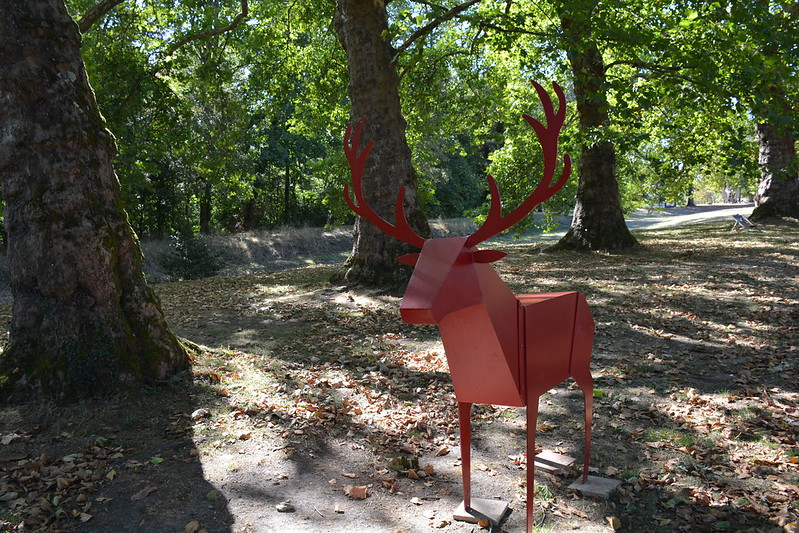In the footsteps of Santiago Drake del Castillo

Monts
In the footsteps of Santiago Drake del Castillo
Easy
1h
3,5km
+60m
-60m
Loop
Embed this item to access it offline
Attachment
- Downloadpdf
Balade en Touraine : Sur les pas de Santiago Drake del Castillo - Monts
Credit: Balade en Touraine : Sur les pas de Santiago Drake del Castillo - Monts - Touraine Vallée de l'Indre
Description
- The château
In front of the former orangery, now converted into a store, lies the château's grounds. Redwoods, cedars, purple beech, lime, plane and chestnut trees grace the promontory overlooking the Indre valley. On the left, the water tower used to feed a stream that cascaded down the hillside.
Head towards the two-part château: on the left, François Briçonnet's pavilion, with its high staircase tower; on the right, the wing built in 1855 by Santiago Drake del Castillo. In the shade of a grove of lime trees, you'll discover a remarkable panorama of Balzac's beloved Indre valley. Turn right into the forest. - Le cimetière des Chiens
At the tennis court, turn left and take the log staircase to the dog cemetery. Wallis Simpson's dog, Slipper, is buried here. - The wash-house
At the crossroads, turn right and walk past the washhouse. The two dams provided a clear, brisk flow of water. The washerwomen beat the linen, which they washed with ash and soap. - The pond
Take the footbridge over the pond. Walk along the dike, then turn right. You might even spot a heron fishing, or a moorhen and her young? - La Mauclergerie
Turn left up a steep wooded slope. At the top, you'll reach an avenue of hundred-year-old oaks. Turn left along an avenue of lime trees, towards the former 18th-century Mauclergerie pavilion. These alleys of old trees with hollow trunks are home to numerous insects (large capricorn beetles, dormice, ....) and birds (woodpeckers, nuthatches, owls, ....). - The stone cross
Take the path opposite the pavilion. Trees and branches left on the ground provide shelter for wildlife. Pass a beautiful stone cross. Two springs feed the Piole stream, which you cross on the bridge known as the “Pont de Sainte-Hélène”. This name was chosen by Santiago Drake des Castillo, in homage to his wife Claire's father, one of Napoleon's generals. Now follow the stream and wet meadows, rich in characteristic flora: hemp-leaved eupatorium, comfrey,... - The Moulin couché
The Moulin couché is a pumping station that supplied water to the château, kitchen garden and orchard. The cast-iron and steel mechanism, installed in 1855 by Brault et Fontaine, consists of a trough wheel driving a pump. Turn left. After walking along the dike, lined with majestic plane trees, turn right. At the water mirror, the château can be seen on the left, through a gap in the forest. On the right, in the distance, you can make out the buildings commissioned by Claire Drake del Castillo: school, chapel and hospice - The old forge
At the gate, turn left up the driveway. Orchids dot the hillside in spring, notably the monkey orchid with its colorful primate-shaped floret. On the right are portraits of Walli Simpson and the Duke of Windsor, created in 2007 by Touraine sculptor Michel Audiard. Further on, the old forge, built in 1861, must have featured a steam-powered power hammer. - The vegetable garden
Return to the château and continue your tour with a visit to the botanical kitchen garden and the conservatory orchard. The conservatory orchard is not open to the public. Its old varieties have poetic names.
- Departure : Candé castle
- Arrival : Candé castle
- Towns crossed : Monts and Joué-lès-Tours
Forecast
Altimetric profile
Recommandations
In the forest
Information desks
4 Rue du Château, 37190 Azay-le-Rideau
Rd 910, 37250 Montbazon
Report a problem or an error
If you have found an error on this page or if you have noticed any problems during your hike, please report them to us here: